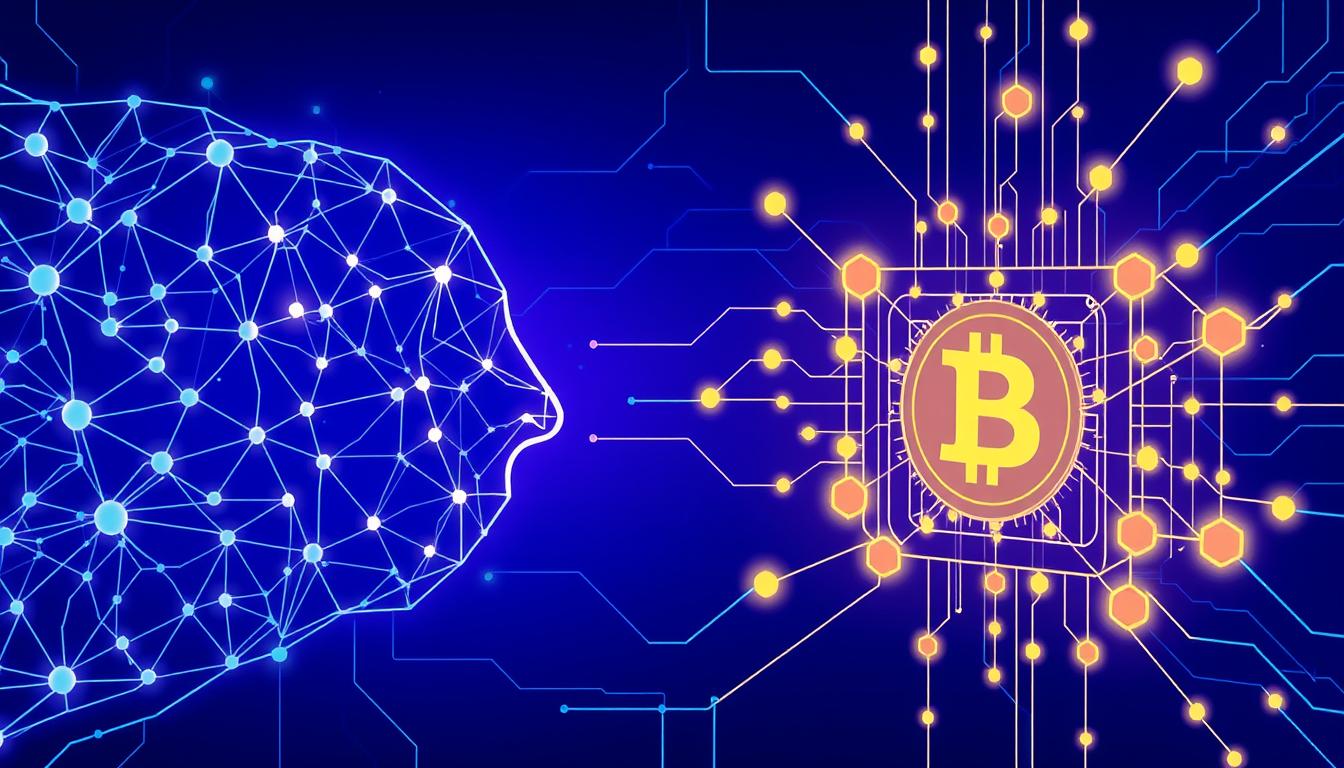AI in Cybersecurity: A Game-Changer
Cyber threats are getting more complex, with over 60% of organizations facing a significant cyberattack in recent years. Artificial intelligence has changed the game in cybersecurity. It helps organizations spot and tackle threats better.
By using AI in cybersecurity, digital protection has gotten a boost. AI looks through huge amounts of data to find patterns and oddities. This lets organizations defend themselves before threats even happen.
Key Takeaways
- AI enhances cybersecurity by detecting and responding to threats more effectively.
- Artificial intelligence analyzes vast amounts of data to identify patterns and anomalies.
- The use of AI in cybersecurity enables a proactive defense against cyber threats.
- Organizations leveraging AI experience improved digital protection.
- AI-powered systems stay ahead of cyber threats by identifying possible vulnerabilities.
The Growing Importance of AI in Cybersecurity
Cyber threats are getting more complex and sophisticated. This makes traditional security measures less effective. Now, we need more advanced technologies to keep up.
The Evolving Landscape of Cyber Threats
Cyber threat actors are using AI, called “dark AI,” for faster and smarter attacks. These AI-powered threats move quickly, often hiding in plain sight. They use real tools and credentials to look like normal activities.
AI-driven cybersecurity solutions are key to fighting these threats. By using machine learning for cyber defense, companies can strengthen their security.
Limitations of Traditional Security Approaches
Old security methods can’t keep up with new threats. They often rely on outdated signature-based detection and manual checks. These methods are slow and can’t handle new threats well.
Adding automated security threat detection is vital. AI solutions help companies detect and act on threats faster. This makes their cybersecurity much stronger.
Key AI Technologies Enhancing Digital Protection
Cyber threats are getting more complex, and AI is helping to fight back. AI can quickly analyze huge amounts of data to spot threats. This makes it a key tool for keeping digital assets safe.
Machine Learning for Cyber Defense
Machine learning is a big help in cyber defense. It looks at data and finds patterns that might mean trouble. Over time, it gets better at spotting threats.
Pattern Recognition and Anomaly Detection
AI is great at finding patterns and odd behavior. It checks network traffic and user actions. If it finds something strange, it alerts us to a possible attack.
Behavioral Analysis Systems
Behavioral analysis systems use machine learning to know what’s normal. They watch for anything that doesn’t fit. This helps stop problems before they get big.
Automated Security Threat Detection
AI can find threats automatically, saving a lot of time. This is super important in today’s fast world of cyber threats.
AI-Powered Predictive Capabilities
AI can guess where and when attacks might happen. It looks at past data and current trends. This lets us get ready for threats before they hit.
| AI Technology | Function | Benefit |
|---|---|---|
| Machine Learning | Pattern recognition and anomaly detection | Enhanced threat detection |
| Automated Security Threat Detection | Real-time threat identification | Rapid incident response |
| AI-Powered Predictive Capabilities | Predictive analysis | Proactive threat mitigation |
Benefits and Challenges of AI-Driven Cybersecurity Solutions
AI is changing the way we protect against cyber threats. It brings enhanced detection capabilities and faster response times. This is key as threats get more complex.
Advantages of Leveraging AI in Cybersecurity Operations
Using AI in cybersecurity has many benefits. A big plus is the improved response time and accuracy in spotting and fixing threats.
Improved Response Time and Accuracy
AI can process huge amounts of data quickly. This means quicker response times to threats. It also makes threat detection more accurate.
Scalability and Adaptability
AI solutions grow with your needs and keep up with new threats. This flexibility is vital in the ever-changing world of cyber threats.
Limitations and Implementation Hurdles
But, AI-driven solutions also come with challenges. These include technical constraints and ethical issues.
Technical Constraints
There are technical hurdles to overcome when using AI in cybersecurity. Problems like data quality and system integration can affect AI’s performance.
Ethical and Privacy Considerations
There are also ethical and privacy considerations to think about. It’s important to make sure AI systems are transparent and respect privacy.
Conclusion: The Future Landscape of Cybersecurity with AI
Cyber threats are getting more complex, and AI in cybersecurity is key. AI will help organizations stay ahead of new threats. It’s a big step forward in keeping digital spaces safe.
Using AI for cybersecurity is vital. It helps protect digital information better. With AI, companies can lower their risk of cyber attacks.
The future of cybersecurity will see more AI use. As AI grows, it will be a big part of keeping data safe. It’s becoming a must-have for any good cybersecurity plan.
FAQ
How is AI being used to enhance digital protection in cybersecurity?
AI analyzes huge amounts of data to spot patterns and oddities. This helps organizations stay one step ahead of cyber threats. Machine learning algorithms help detect and tackle threats. AI’s predictive powers let organizations get ready for threats before they happen.
What are the benefits of using AI in cybersecurity operations?
AI boosts cybersecurity by making responses faster and more accurate. It also makes systems more scalable and adaptable. AI can quickly sift through vast data, helping organizations fight threats more effectively.
What are some of the challenges associated with AI-driven cybersecurity solutions?
Using AI in cybersecurity comes with technical and ethical hurdles. Implementing AI solutions can be tough. There’s also worry about AI bias or errors.
How does machine learning contribute to cyber defense?
Machine learning helps by analyzing data for patterns that might signal threats. This lets organizations spot and tackle threats better. It also helps them stay ahead of new threats.
What is the role of automated security threat detection in AI-driven cybersecurity?
Automated threat detection is key in AI-driven cybersecurity. It lets organizations quickly and accurately find and act on threats. AI systems can scan huge data sets for threats, alerting organizations to take action.
How will AI continue to shape the future of cybersecurity?
AI will keep growing in importance for cybersecurity. As AI advances, it will help organizations stay safer. AI solutions will get better, helping organizations protect against new threats.
What is the significance of AI-powered predictive capabilities in cybersecurity?
AI’s predictive powers let organizations get ready for threats before they happen. This keeps them ahead of new threats and boosts their security.
How does AI enhance the overall security posture of organizations?
AI boosts security by improving threat detection and response. It also enhances predictive abilities. This helps organizations stay ahead of threats and protect their digital assets better.














